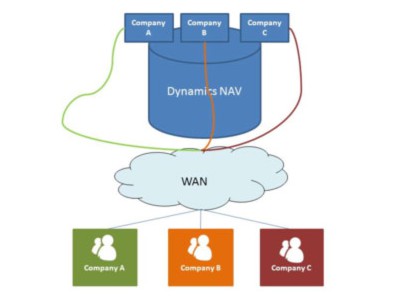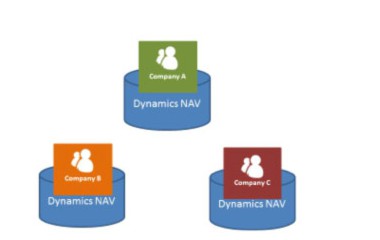How to select an international Microsoft Dynamics NAV partner for your global business
Microsoft Dynamics is an ERP solution that is both versatile and flexible making it ideal for companies across the world. It is equally suited to a single site operating independently as it is to global networks managing multiple remote locations, across different countries and continents. In short its versatility makes it a system of choice for single site companies aiming to grow as well as large company groups with subsidiary operations worldwide.
The purpose of this white paper is to explore the options for deploying Microsoft Dynamics across multiple sites in multiple countries. It looks at the benefits of centralised versus decentralised models, how the different Microsoft Dynamics ERP solutions best fit each model and offers advice on how to find a local or International Dynamics Partner that can handle the requirements of multisite implementations.
Microsoft Dynamics ERP International Partner Channel
Microsoft Dynamics ERP solutions support multi-company, multi-currency and multi-lingual requirements, making them ideal for international organisations looking to standardise on a common platform. This may be a directive that all companies should use the platform irrespective of how it is implemented or a centralised strategy that controls not only what systems people use but how they use them.
- Multi-company means a licence that can include any number of companies provided that the main licensee holds at least 50% interest in the subsidiaries. Multi-company means functionality to address requirements such as inter-company transactions and consolidation.
- Multi-currency supports trading in multiple currencies, consolidating multiple currencies
- Multi-lingual means users working in their choice of language and outbound documents that can be in the preferred language of your suppliers and customers.
Microsoft Dynamics ERP Partner Channel
The global reach of Microsoft Dynamics is impressive with over 40 localised versions managed by Microsoft direct and over 140 managed through the partner channel. Partners vary from single-site local suppliers to larger international groups.
For group companies, NAV Dynamics solutions support both centralised and de-centralised deployments. Clients can opt to work with one partner to manage the whole deployment as a single organisation or as a syndicate of local partners.
Centralised NAV Implementation
A true centralised model would typically suggest one system, with one server that all companies log into. The configuration of the system is managed centrally. Local requirements are met in the centre including
- language packs
- local fiscal requirements
- specific reports / documents per company
- specific developments
Everything is managed by the central company supported by one local or international Dynamics NAV partner. Local partners may be engaged to provide local language support (training and support) but they would not have access to code so any changes required would be routed via the central company.

De-centralised NAV implementation
The second option is to deploy a de-centralised version where several standalone instances of Dynamics NAV are implemented. With a de-centralised setup, how control over configuration and
customisation is managed needs consideration to ensure compatibility and consistency across all implementations. In the scenario illustrated below, there may also be a holding company that consolidates information across the separate installations.

There is flexibility to adopt a hybrid approach where similar companies (by region, language or business process) are grouped together on a single instance. This model supports multi-tiered consolidation.
Selecting global Dynamics NAV Partners
If the model is totally de-centralised then it is likely that local companies will have the directive to select their preferred partner. If the solution is centralised or there are common developments / configurations to be deployed, it makes sense to work with a “main contractor”, i.e. a single partner who will work with you to control the build of the solution. This can then be deployed through your project team, the master vendor’s team and / or engaging local partner services for training and support.
Where a project requires local support in multiple locations, the options are to work with a large international dynamics partner who has presence in all the locations required or to work with a partner who can assist in putting together a syndicate of appropriate partners. The latter may seem like more work to organise and manage when compared to an existing group, however, it means there is much more flexibility to select the most appropriate partner for each location rather than having no choice outside of selecting the main partner.
For example, if you have a project that requires support in UK, Spain and France, you could look to find a partner who has offices in each country only to discover that their Spanish office is in Jerez and your office is in Barcelona, they specialise in a completely different vertical to you, and that they support your competitor in that region etc. Putting together a syndicate would mean you control which partner to use for each location with the main contractor assisting with the management.
In summary, Microsoft Dynamics meets the functional needs of international business. The Microsoft international dynamics partner channel offers flexible options for successfully implementing and supporting Dynamics across the globe, whether this is a centrally managed implementation controlling local installations or multiple installations managed locally with varying levels of autonomy.
For more information on selecting a local or international dynamics partner, please don’t hesitate to get in touch, or get a business central quote here.
